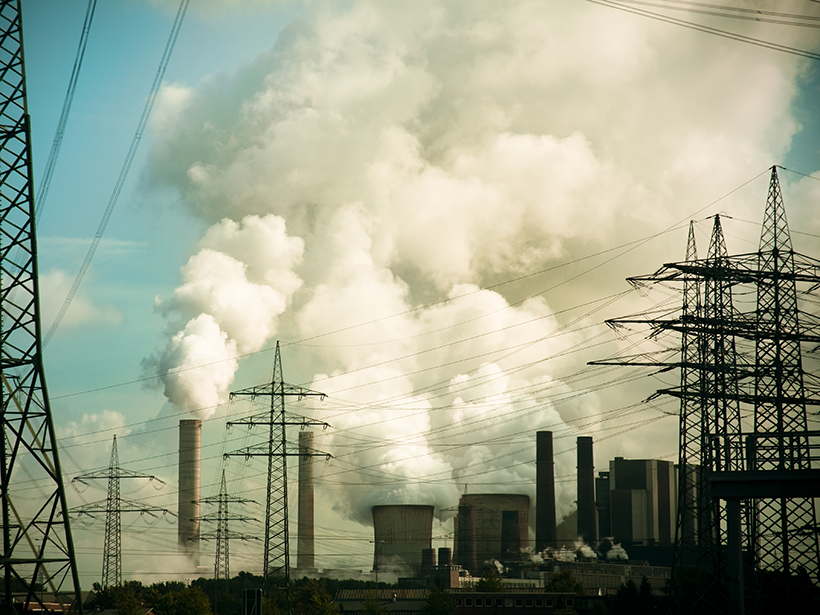The House of Representatives’ Science, Space, and Technology Committee turned over a new leaf on climate change at a hearing Wednesday when Rep. Eddie Bernice Johnson (D-Texas) chaired her first Science Committee hearing since Democrats took control of the House.
“Though this administration has regrettably chosen to ignore the findings of its own scientists in regard to climate change, we as lawmakers have a responsibility to protect the public’s interest.”
Largely gone was the climate denialism that often had been on display during the previous chairmanship of Rep. Lamar Smith (R-Texas). In its place was a serious discussion that focused on possible measures to deal with climate change and that hinted at some potential bipartisan paths forward on the issue.
“Though this administration has regrettably chosen to ignore the findings of its own scientists in regard to climate change, we as lawmakers have a responsibility to protect the public’s interest,” said Johnson, whose committee oversees much of the federal climate research portfolio. “I plan to do this by making sure this committee is informed by the most relevant and up-to-date science as we work to conduct our legislative and oversight responsibilities.”
Sparring Over the Green New Deal
Democrats and Republicans sparred over what might be the most effective ways to deal with climate change, but overall, they acknowledged its impacts, the human contribution to it, and the need for a slate of potential remedies.
One area of disagreement was a recently introduced Congressional resolution to support an ambitious Green New Deal. That resolution, already backed by more than 60 House Democrats, calls for achieving net-zero greenhouse gas emissions and other environmental, infrastructure, economic, and equity goals “through a 10-year national mobilization.”
“We’ve led the world in coal, oil, and gas development. Now we need to do it with rapidly growing clean energy markets.”
Rep. Steve Cohen (D-Tenn.) and other Democrats called the deal “aspirational.” “Some of the specifics certainly aren’t going to happen anytime soon. Some of them will probably never happen at all,” he said. “But the concept of putting people’s minds and attentions to climate change is important.”
Republicans, however, flinched at what they said are unrealistic timetables, government overreach, and potential financial burdens. “We have seen a lot of aspirational goals lately. I think we need to be very careful about crossing the line from aspirational to outlandish goals that could harm our economy,” said committee member Rep. Michael Waltz (R-Fla.).
Yet Waltz also said that he wants the United States to be a leader in clean energy efforts. “We’ve led the world in coal, oil, and gas development. Now we need to do it with rapidly growing clean energy markets. I think to succeed we need a very broad portfolio of, emphasis here, low-cost technologies to speed the transition to renewable cleaner energy,” Waltz said, adding that nuclear energy should be in the energy mix.

Some Potential Fixes
Natalie Mahowald, professor of engineering at Cornell University in Ithaca, N.Y., and a lead author of the Intergovernmental Panel on Climate Change’s (IPCC) October 2018 Special Report on Limiting Warming to 1.5° C, testified that the report provides a menu of policy options, technologies, and techniques that could help reduce climate change impacts. Those options, she said, include reducing fossil fuel subsidies, removing regulatory barriers for new energy-producing technology, promoting a stable business environment and low-carbon technologies, and research into carbon dioxide removal and utilization technologies. The IPCC report states that limiting global warming to 1.5°C would require rapid and far-reaching transitions in energy and other systems that “are unprecedented in terms of scale.”
Joseph Majkut, the Republican’s witness at the hearing who is director of climate policy at the Washington, D.C.–based Niskanen Center think tank, also called for a multipronged climate change strategy. He said the strategy includes reducing greenhouses gases, encouraging geoengineering technology research and norms, and placing a priority on adaptation and reducing societal vulnerability to climate change.
“A world aiming for 2°C”—as the increase in temperatures above preindustrial levels—“will require a portfolio of low-carbon energy sources, including carbon capture and storage for fossil fuels,” he said. “In a world aiming for 1.5°C, processes that remove carbon from the atmosphere will need to be deployed at a scale capturing up to one quarter of today’s emissions.” Majkut said “that is a mind-boggling number for an infant technology” and it would need congressional support.
The Planet Is Running a Fever
“The planet is running a fever.”
Robert Kopp, director of the Rutgers University Institute of Earth, Ocean, and Atmospheric Sciences, testified that “the planet is running a fever” and that a wide variety of approaches, including forest sequestration and technological fixes, could help to slow climate impacts. After the hearing, Kopp told Eos that he was “very encouraged” by the committee hearing and said that he heard “some real interest in this issue” from the ranking Republican member and many of the newer Republican committee members.
Majkut told Eos that there is “a lot of interest for bipartisanship,” including on advanced research, among committee members. “Today’s hearing is a real demonstration that ideas on this issue are shifting, and that gives me hope for long-term change,” Majkut said. “This feels like a pretty different world from what we had 6 months ago in the Science Committee. [It’s] not just because of the Democratic majority, but we had members on the Republican side who were saying climate change is real [and] we should do something about it. It’s a question of balance. It’s a question of innovation.”
—Randy Showstack (@RandyShowstack), Staff Writer
Citation:
Showstack, R. (2019), Congressional hearing considers paths forward on climate change, Eos, 100, https://doi.org/10.1029/2019EO116425. Published on 14 February 2019.
Text © 2019. AGU. CC BY-NC-ND 3.0
Except where otherwise noted, images are subject to copyright. Any reuse without express permission from the copyright owner is prohibited.

